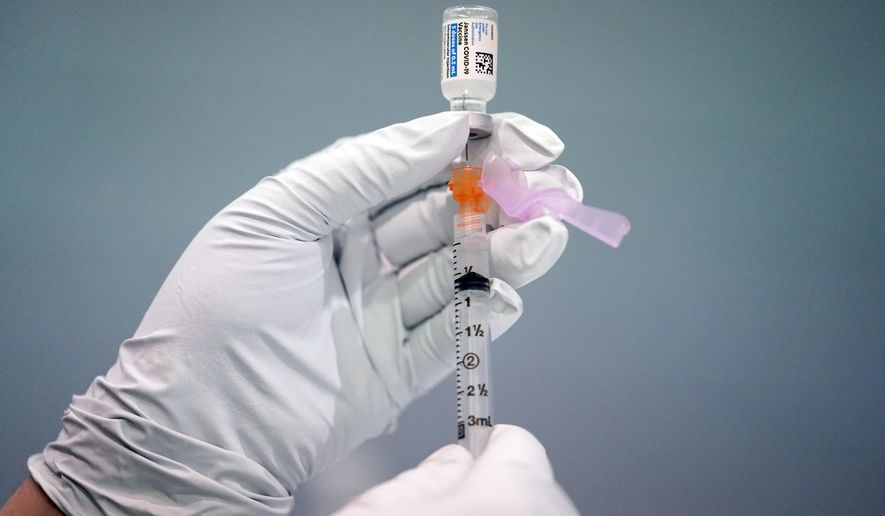A panel of U.S. health experts on Friday recommended resuming use of Johnson & Johnson’s COVID-19 shot after the vaccine’s pause earlier this month.
In a 10-to-4 vote, panel members recommended lifting the pause of the vaccine with the addition of a warning about the increased risk of very rare but serious blood clots.
“Today’s presentations and discussions have convinced me that lifting the pause on J&J’s vaccine is in the best public health interest of the U.S. population,” said Dr. Henry Bernstein, a professor of pediatrics at the Zucker School of Medicine at Hofstra/Northwell in New York, NBC reported.
It’s now up to Dr. Rochelle Walensky, director of the Centers for Disease Control and Prevention, to decide whether to accept the panel’s recommendations.
If approved, the Food and Drug Administration will have to amend the emergency-use authorization for J&J’s COVID-19 vaccine and update the label to include a warning about the risk of blood clots for women younger than 50, CNN reported.
Investigators found that 15 women out of nearly 8 million people who received the J&J vaccine were diagnosed with a rare blood clotting disorder possibly linked to the shots, according to a presentation shared during the advisory panel meeting.
Three of these women died after developing the disorder known as thrombosis with thrombocytopenia syndrome or TTS. Seven remain hospitalized while five have been discharged. The risk of developing these blood clots appears to be the greatest in women ages 30 to 39, the CDC’s advisory committee on immunization practices said.
More than 9 million doses of J&J’s one-shot coronavirus vaccine are ready to be administered and have already been distributed to states, tribes and territories, CNN reported Friday, citing White House COVID-19 adviser Jeff Zients. It is unclear when shots will resume.
On April 13, federal regulators temporarily paused the use of the Johnson & Johnson vaccine after an initial six reports of blood clots out of nearly 7 million recipients emerged. All six blood clotting cases, including one death, occurred in women ages 18 to 48.
Health experts around the world have stressed that the pros of any coronavirus vaccines outweigh the risks of possible severe side effects and the dangers of contracting COVID-19.
J&J’s vaccine is similar but not identical to the AstraZeneca-Oxford vaccine in Europe, health officials have said, where regulators in many countries temporarily suspended its use amid blood clot concerns. Denmark has banned the use of AstraZeneca’s vaccine.
On Tuesday, European regulators announced they would allow the use of the J&J vaccine to resume with a formal warning label attached.
The AstraZeneca and J&J vaccines possibly could trigger an immune response involving blood platelets and coagulation systems in some people, officials theorize.
The FDA on Friday also announced that it completed an inspection at a Baltimore factory that had to discard millions of Johnson & Johnson vaccine doses due to possible contamination.
The agency cited a series of problems at Emergent BioSolutions, including the risk of additional contaminated doses and issues with the plant’s disinfection practices. The factory has agreed to pause new production while it works with federal regulators to address “potential quality issues,” the FDA said in a statement.
• Shen Wu Tan can be reached at stan@washingtontimes.com.




Please read our comment policy before commenting.